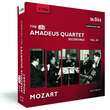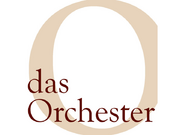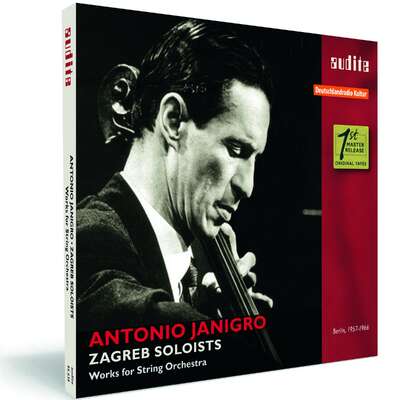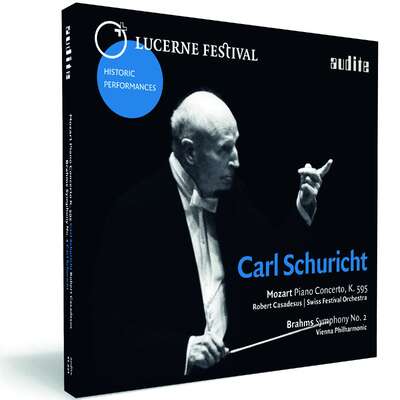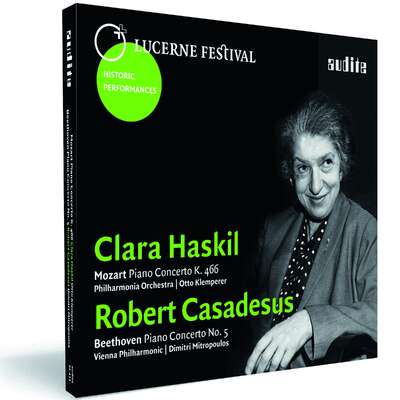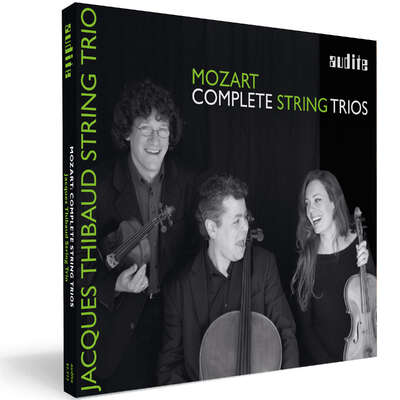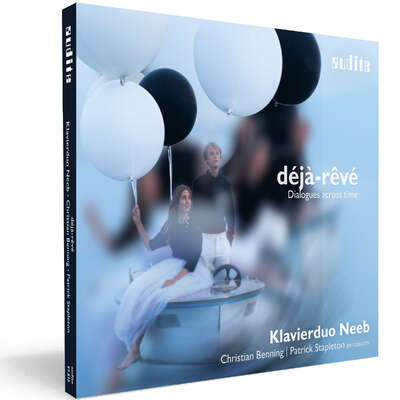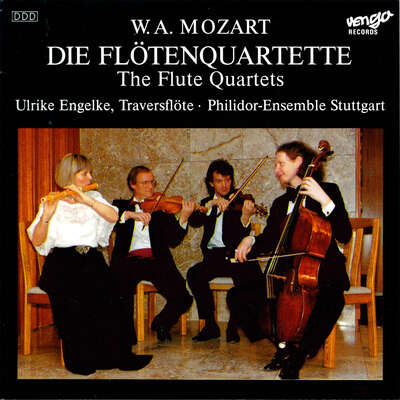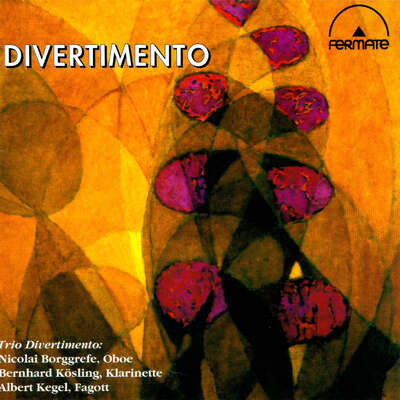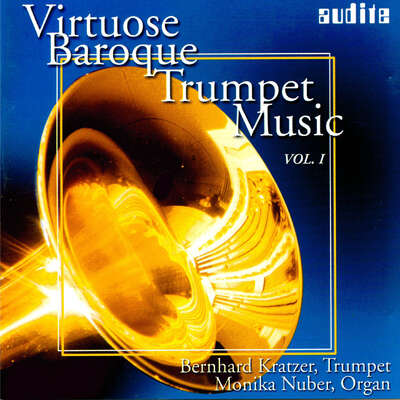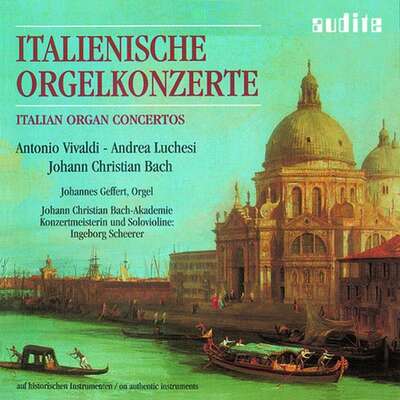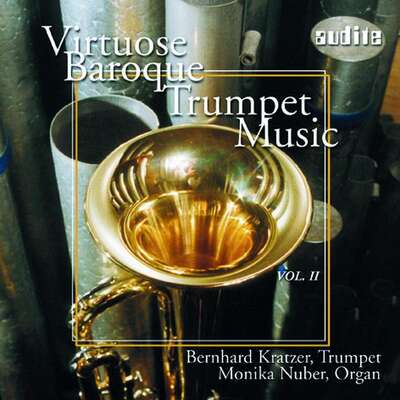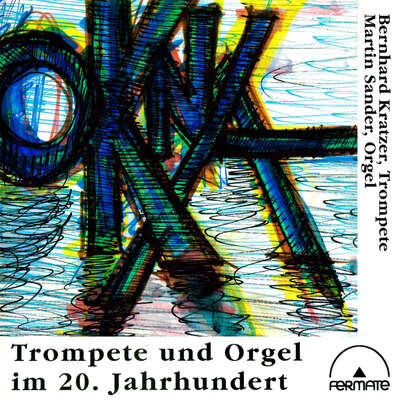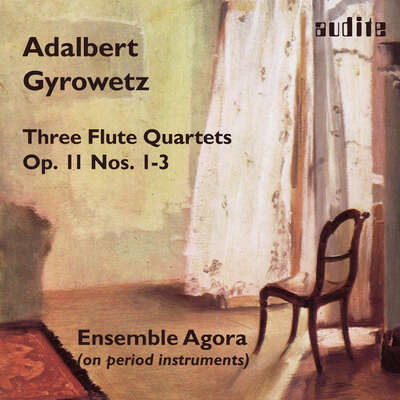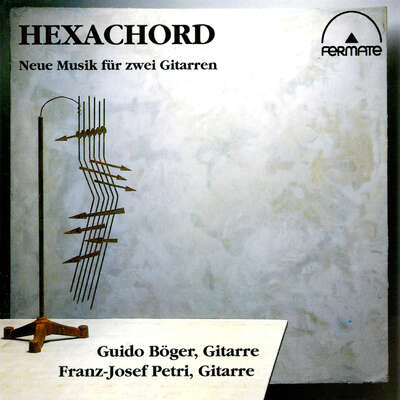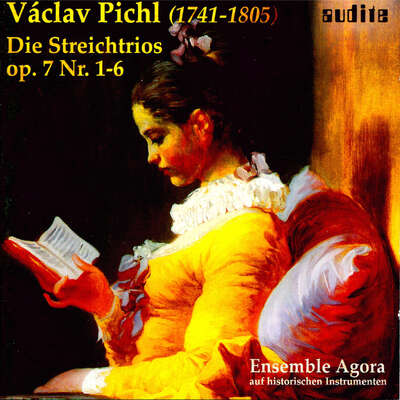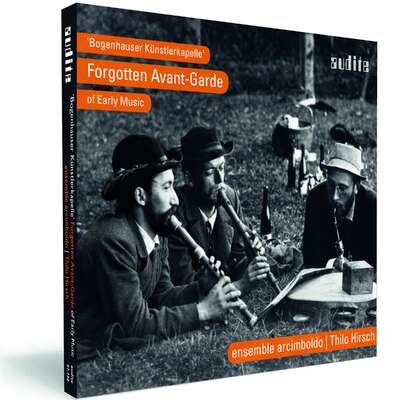
The string quartets of its eponym Mozart were, from the very beginning, a matter of the heart for the Amadeus Quartet. The previously unreleased recordings presented here from the archives of Deutschlandradio were made during the quartet’s first decade. They show the ensemble at a very high technical and musical level even at that early stage of its career. This edition is complemented by the four great string quintets with Cecil Aronowitz and the clarinet quintet with Heinrich Geuser.more
The string quartets of its eponym Mozart were, from the very beginning, a matter of the heart for the Amadeus Quartet. The previously unreleased recordings presented here from the archives of Deutschlandradio were made during the quartet’s first decade. They show the ensemble at a very high technical and musical level even at that early stage of its career. This edition is complemented by the four great string quintets with Cecil Aronowitz and the clarinet quintet with Heinrich Geuser.
Track List
Details
|
The RIAS Amadeus Quartet Mozart Recordings
The RIAS Amadeus Quartet Recordings, Vol. III |
|
| article number: | 21.427 |
|---|---|
| EAN barcode: | 4022143214270 |
| price group: | CV |
| release date: | 18. July 2014 |
| total time: | 332 min. |
Bonus Material
-
Producer's Comment
First-hand impressions of producer Ludger Böckenhoff [German]
- DigiBooklet
Informationen
The third volume of radio recordings with the Amadeus Quartet is dedicated to works of its eponym. From the very beginning, Wolfgang Amadeus Mozart's string quartets were a matter of the heart for the Amadeus Quartet. During the ensemble's long career, which lasted for nearly forty years, the great majority of its concert programmes contained at least one work by Mozart. It is not widely known that the Amadeus Quartet made studio recordings for the Berlin broadcasting corporation RIAS every year for nearly two decades. These previously unreleased Mozart recordings from the archives of Deutschlandradio Kultur, the legal successor to RIAS, were made during the quartet's first ten years. They feature eight of the ten great string quartets written during Mozart's mature period and show the ensemble at a very high technical and musical level, even at that early stage of its career. The great attention to detail and highly controlled form, in combination with great expression, create the prerequisite for musical spontaneity. These recordings are also of particular interest as they document the Amadeus Quartet at different levels in its reading of Mozart. In the first studio recordings of 1950 and 1951 the ensemble's surprisingly unusual and experimental interpretational approach opened up hitherto unknown expressive possibilities. This edition is complemented by recordings of Mozart's four great string quintets. The second viola part is played by the South-African-born Cecil Aronowitz. He was occasionally referred to as the fifth member of the Amadeus Quartet as he was nearly always engaged when a second viola was needed. Three of the four string quintets were recorded in the studio in one single recording session in 1953 - given the high musical quality of these tapes, this is proof of the extraordinary standard of the ensemble, able to lay down a recording more or less straight away. Another peak is the recording of Mozart's clarinet quintet with Heinrich Geuser, one of the leading clarinettists of his time. This release is furnished with a "producer's comment" by producer Ludger Böckenhoff on www.audite.de/en/product/5CD/21427/multimedia.
Reviews
ionarts.blogspot.com
| Friday, December 02, 2016 | jfl | December 2, 2016 | source: http://ionarts.b...
Paul Johnson “Mozart: A Life” — The Discography, Part 1 (Keyboard Sonatas, Chamber Music)
Chamber Music: String Quartets
Johnson: “But it is clear from a study of these quartets (K.168 – 73) that Haydn had a steadying, calming, and deepening effect on Mozart’sMehr lesen
I would, without the least bit of hesitation, recommend the set of the impeccably and inspired playing Quatuor Mosaïques (which came out of Nikolaus Harnoncourt’s Concentus Musicus). Their recordings of Haydn and Mozart set a standard for original instrument performances and elevated the genre from niche to mainstream. Alas, these recordings are always in and out of print and the Naïve label seems to re-issue them only piecemeal or when the Amazon price for used copies has reached $500. Keep your eyes peeled. Meanwhile, the modern instrument Klenke Quartet(t)’s liveliness and precision in sparkling renditions equally set a very high standard indeed. For old-world Mozartean beauty, there’s little that goes beyond the Amadeus Quartet, whose box of early recordings on Audite would make a splendid recommendation, alas I try to stay away from catch-all boxes. On the other side, that set includes most of the String Quintets and the Clarinet Quintet, too… which makes for a whole lot of essential Mozart in one place. Although I don’t easily fall in love with the Emerson Quartet’s Mozart (and their classical repertoire performances in general), the undeniable quality and convenience of their recording of the last three quartets gives them the nod here. There’s an air of disinfectant to the affair, but not unlike the Hagen Quartet’s ‘X-Ray’ vision in late Beethoven, the total neatness has intriguing merits all of its own. As for the early quartets, there are not many recordings outside of yet more boxes where they can be found (the Hagen Quartet recordings on DG are out of print), but fortunately the Éder Quartet performances on Naxos are very enjoyable, indeed, with a bit of a boom and broadness to them, that make these quartets sound perhaps a little more mature, still, than they are.
Scherzo | N° 304 - febrero 2015 | Guillermo Pérez de Juan | February 1, 2015
Sin ningún género de duda, capaces de competir con las versiones oficiales que los mismos integrantes grabaron para DG. Nitidez y frescura como principales baluartes. Un complemento ideal para ponerle la guinda a un pastel que, cocinado durante siete años de grabaciones, endulzará decididamente todos nuestros sentidos. [...] Que lo disfruten!Mehr lesen
Diapason | N° 631 Janvier 2015 | Nicolas Derny | January 1, 2015
Du Mozart des Amadeus, l'honnête mélomane sait déjà tout. Que dire alors du fidèle lecteur de Diapason, dont le magazine favori redoraitMehr lesen
Comme on s'y attendait, les quatuors enregistrés entre 1950 et 1955 pour le RIAS diffèrent peu des gravures ultérieures. Du style et de la conception des pièces, tout ou presque semble fixé sous les archets de la jeune équipe. On y entend déjà les quatre compères tout en fraîcheur, en lyrisme lumineux (merci Norbert Brainin), en tendresse, en cohésion et en subtilité (les voix «internes»!), mais avec quelques années de moins qu'en stéréo – comprenez: avec parfois un rien de vigueur supplémentaire dans le coup d'archet. Et à ceci près que les micros de la radio nous rapprochent à ce point des cordes que l'on croit presque parfois pouvoir sentir l'odeur de la colophane. On en vit d'autant mieux chaque frémissement. En toute intimité.
Même constat pour les quintettes de 1953 et 1957 (le na 6) avec Cecil Aronowitz, cinquième membre du quatuor. Si ce n'est que cette photo de jeunesse les flatte plus que celle, bien connue, réalisée pour le label à l'étiquette jaune entre 1968 et 1975. Tout ici sonne de manière p lus resserrée, plus fusionnelle et plus vivante – en dépit de quelques tempos un rien plus lents.
Pas une once de vibrato dans le jeu du clarinettiste Heinrich Geuser qui les rejoint pour le KV 581 (normal chez un germanique, qui plus est en 1952). Les prodigieux Amadeus, eux, ne changent rien au leur. Et comparé à la version de 1976 avec Gervase de Peyer, c'est le printemps – dans l'Allegro, surtout! Décidément irrésistible.
Das Orchester | 01/2015 | Matthias Roth | January 1, 2015
Das Quintett KV 614 schließlich (November 1957) zeigt das Ensemble auf dem Gipfel seiner Mozart-Kunst: Spielerischer Witz und technische Meisterschaft gehen hier eine faszinierende Liaison ein, die – auch wenn sich stilistisch seither wieder vieles verändert haben mag – immer noch beeindruckt.Mehr lesen
International Record Review | December 2014 | Nigel Simeone | December 1, 2014
Reissues and historic recordings
Mozart in Berlin
The Amadeus Quartet recorded all the Mozart 'Haydn ' and 'Prussian' Quartets for RIAS in Berlin between 1950 and 1953 , along with the ClarinetMehr lesen
Gramophone | December 2014 | December 1, 2014 The Amadeus Quartet
The third instalment of Audite's Amadeus Quartet recordings, all of them taken from Berlin RIAS broadcasts and dating from the period 1951-57, coversMehr lesen
Most of the differences concern the sound quality, which on these RIAS tapes is appealingly intimate. Take Quartet No 18, K464, the opening Allegro, where, as presented here, dynamic contrasts tell with expressive impact but on DG, where the balance suggests listening from the rear of a medium-size concert hall, the effect is less immediate. In this instance the stereo 'pay-off' is minimal compared to the advantage of having the players sound as if they're in the room with you. And with playing as musically sympathetic and stylistically 'on the button' as we're offered here, who can complain?
Viewed overall there is some extraordinarily beautiful playing on offer: the heart-stopping Adagio from the Quintet in D major, K593, with Cecil Aronowitz, for example. The opening of the C major Quintet, K515, is perfection, an amiable but lively Allegro with a spring to its step, while the dialogue with Aronowitz in the Andante could hardly be bettered. And then there's the tragic Adagio that opens the finale of the G minor Quintet, K516, so full of implied regret. The performance of the Clarinet Quintet with Heinrich Geuser is another highlight. I'm not suggesting you replace your DG versions but you could profitably use these marvellous recordings as musically nourishing supplements to them. Superb transfers.
Musica | N° 260 - Ottobre 2014 | Massimo Viazzo | October 1, 2014
[...] c’è tutto il piacere della scoperta, il vigore della gioventù, una fantasia inesausta e grande dinamismo. Sono interpretazioni davvero elettriche, a volte anche spigolose, e che non paiono sempre sovrapponibili a quelle ufficiali. Qui si ascolta un Mozart sbalzato, vivo, carnale come non mai.Mehr lesen
The Strad | October 2014 | Carlos Maria Solare | October 1, 2014
Berlin Memories
Carlos Maria Solare reviews a box of archive radio recordings of Mozart from a veteran ensemble
[...] each movement in this set was recorded in one unedited take, but no concessions whatsoever need to be made. You get the best of both worlds: performances that are in every sense of the word 'live', but with nothing in the way of audience noises.Mehr lesen
Record Geijutsu | 10/2014 | October 1, 2014
Japanische Rezension siehe PDF!Mehr lesen
WDR 3 | TonArt 17.07.2014, 15.05 - 17.45 Uhr | Marcus Stäbler | July 17, 2014
Das Amadeus Quartett stellt die Konturen deutlich heraus – und modelliert die dynamischen Kontraste der Musik dabei mitunter überraschend schroff.Mehr lesen
